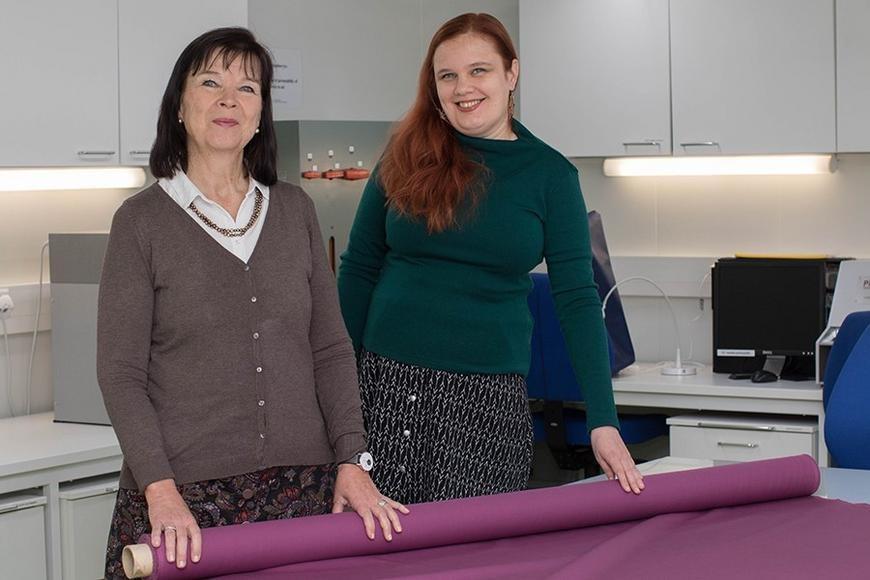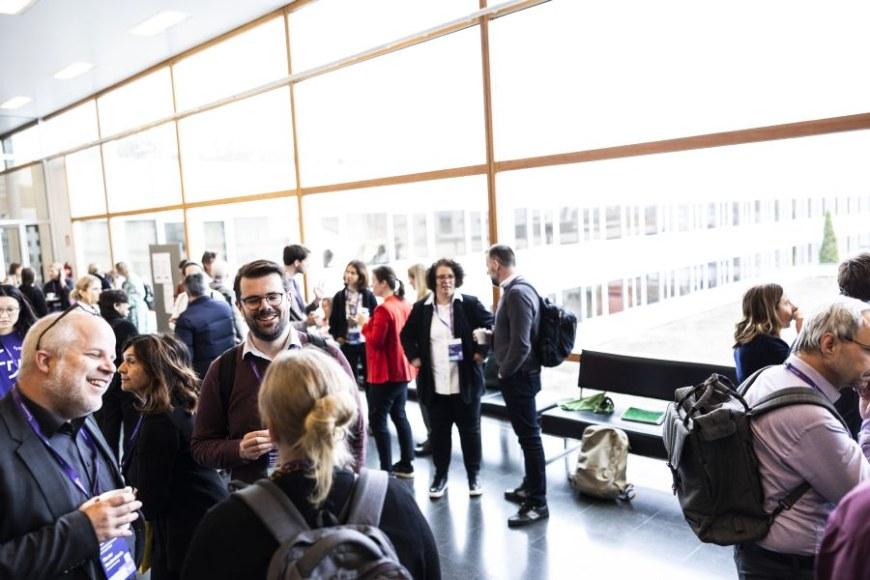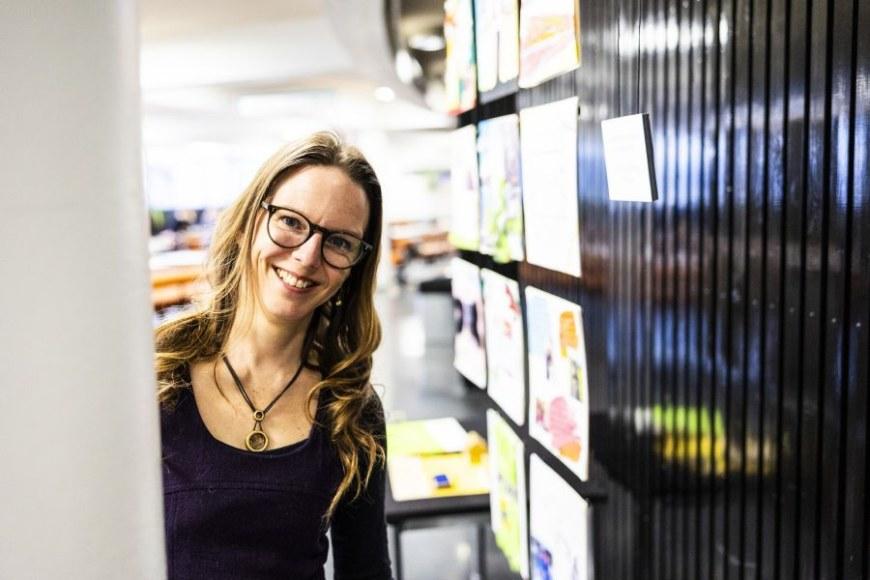Textile engineering education is needed again

“There is now a clear societal pressure for textile engineering education. The world is very different from seven years ago when the textile engineering programme was discontinued at Tampere University of Applied Sciences. There is new demand and need for engineering expertise in the field,” says Principal Lecturer Ulla Häggblom, who is in charge of TAMK’s Degree Programme in Bioproduct Engineering.
This is also confirmed by a company survey made by Finnish Textile and Fashion together with Aalto University and TAMK this autumn. More than 80% of the almost 150 respondents considered textile engineering education important or very important.
New fibres and environmental consciousness as drivers of new needs
The growing importance of ecologicality and ethicality in global textile production has increased the need for new fibres to replace cotton and new technology to process recycled textiles.
“Finland has top-level expertise in development of new textile materials and environmentally friendly technologies. Cotton is not a very ecological material. It demands a lot of cultivation area which could also be used for food production. Furthermore, its cultivation requires high amounts of water,” Häggblom reminds.
In addition to ecologicality and ethicality, the role of product safety and quality has also increased. It is more and more important for companies and consumers to know where, how and of what raw materials products are made.
Textile engineering as a part of bioproduct engineering education
TAMK’s Degree Programme in Bioproduct Engineering now offers a free-choice study module on textile engineering. Key themes of the module are thread and textile structure and finishing as well as ecologicality, safety and quality management. In the future, the aim is to extend the module based on needs.
“Next autumn we will know more about the potential need for additional modules. It has to be remembered that we are not recreating the old textile engineering education but creating a new one to respond to the current needs. We are only at the beginning of the development work,” Häggblom states.
According to Häggblom, there is no need for a separate degree programme in textile engineering.
“Textiles are bioproduct materials as much as wood and cardboard. Chemical pulp knowledge opens doors in both paper and textile industry. It is great to see how new environmentally friendly wood fibre materials can be developed for the textile industry. There are new and brave openings in the field in Finland.”
Completion of the study module may offer students employment possibilities in companies which make such brave openings.
“There is also need for textile engineering professionals elsewhere. Our students have strong process competence and many companies also need quality management and material competence,” Häggblom emphasises.
Modern textile laboratory as strength
A theme of the offered study module is testing of textiles. TAMK’s textile laboratory is a great asset, as it enables students’ effective learning by testing and doing.
The laboratory also offers companies impartial testing and analysis services. Its latest testing equipment for colour, light and weather resistance has been quite popular.
The textile laboratory operation continued at TAMK even if the degree programme was discontinued.
“Thanks to it, our contacts to companies in the field have remained active and we can offer them analysis services as well as continuing education,” Häggblom rejoices.
Cooperation with Aalto University and companies
TAMK and Aalto University have cooperated for several years in search for solutions to educate textile professionals. Aalto University’s Degree Programme in Chemical Engineering will introduce a minor subject of textile chemistry in spring 2021. The purpose is to expand it later to a new master’s degree programme.
Higher education cooperation is also planned in organisation of new education for companies’ continuing education needs. Degree programme study modules can be modified for working life needs and offered as continuing education, specialisation studies or open UAS or open university studies.
“It is important that we can respond to companies’ needs with basic education as well as tailored continuing education,” Häggblom emphasises.
We tried to establish companies’ exact needs with a survey made together with Finnish Textile and Fashion and Aalto University. The detailed results of the survey have not been analysed yet but it is already clear that there is need for the education.
“The textile field is now experiencing interesting and colourful times. It is great to be a part of the development and create education for the needs of the field. During the corona crisis and related lay-offs, the textile field may be a glint of light which creates something new and offers employment,” Häggblom believes.
Further information:
Ulla Häggblom, Principal Lecturer, Degree Programme in Bioproduct Engineering, School of Built Environment and Bioeconomy, Tampere University of Applied Sciences
Text: Helena Pekkarinen
Photo: Saara Lehtonen





